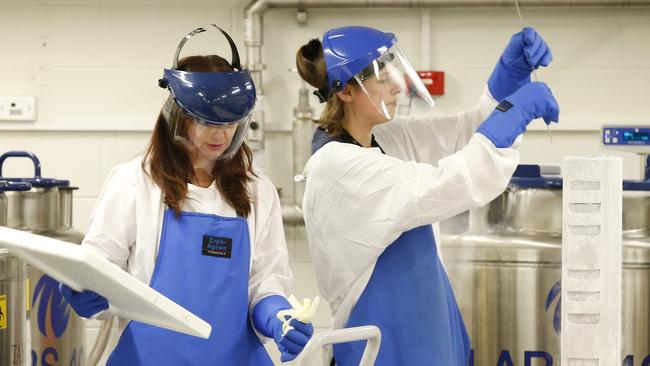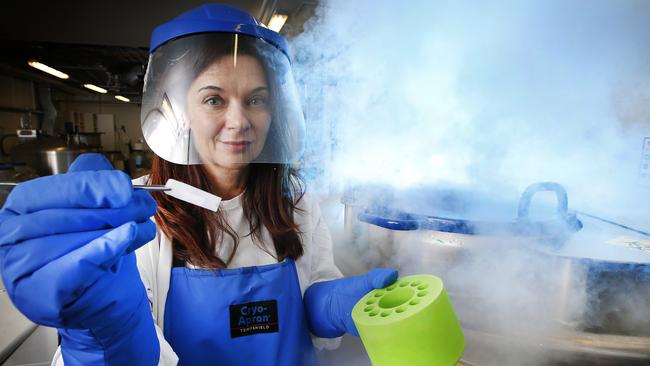Melbourne scientists make major coronavirus breakthrough
A global coronavirus breakthrough from Melbourne scientists could fast track treatments and vaccines to fight the illness, as well as help identify those at risk of dying.
VIC News
Don't miss out on the headlines from VIC News. Followed categories will be added to My News.
Melbourne scientists have discovered how the human body overcomes coronavirus in a global breakthrough hoped to fast-track treatments, vaccines and even identify those at risk of dying.
The Doherty Institute researchers have also shown that healthy people can expect to fight off mild to moderate COVID-19 cases in three days.
For the first time the Doherty team has been able to map in detail the way a patient’s immune system responded to COVID-19, revealing the weapons it used to overcome the new killer.
In further good news, lead researcher Professor Katherine Kedzierska said the antibodies released by the human immune system to overcome coronavirus are very similar to those it uses to combat influenza — despite it never having being exposed to the disease.

“It suggests to us that we can fight the virus and we can drive recovery from COVID-19,” Prof Kedzierska said.
“We found that although COVID-19 is caused by a new virus, in a previously healthy patient robust immune responses can be elicited and associated with clinical recovery.
“We found in this patient three days after hospital admission we could see the emergence of specific cell populations in the blood.”
When a 47-year-old woman from Wuhan presented to a Melbourne hospital as one of Australia’s first coronavirus cases, the Melbourne researchers were already set up to run a detailed analysis of her blood as she progressed through her illness.

The results, published in Nature Medicine, show the range of antibodies the woman’s immune system recruited to successfully fight off the invading infection.
Another four Australian COVID-19 patients and their recovery have since been studied to show the same response — that patients recover three days after the antibodies begin to build up.
Identifying which antibodies must be triggered to combat COVID-19 is the key needed by teams across the world racing to develop a vaccine.
“Knowing that patients can mount antibody responses is important for the vaccination development, as the majority of vaccines are based on antibody responses,” Prof Kedzierska said.

“This information will allow us to evaluate any vaccine candidates. In an ideal world the vaccine should mimic our boodies.”
The work could also boost efforts to develop an antibody therapy to beat coronavirus.
Rather than a vaccine, some scientists are pushing to develop drugs that mimic the weapons used by the immune system to kill the virus, which would be enhanced by the discovery of the antibodies.
While the study should provide some reassurance for the 80 per cent of people who can easily fight off COVID-19, it may have far greater benefits for those at most risk.
By testing a person’s blood for the build up of coronavirus-fighting antibodies as they become ill, Prof Kedzierska said doctors may be able to identify those who cannot fight off the virus on their own and need hospitalisation and interventions.
RELATED:
